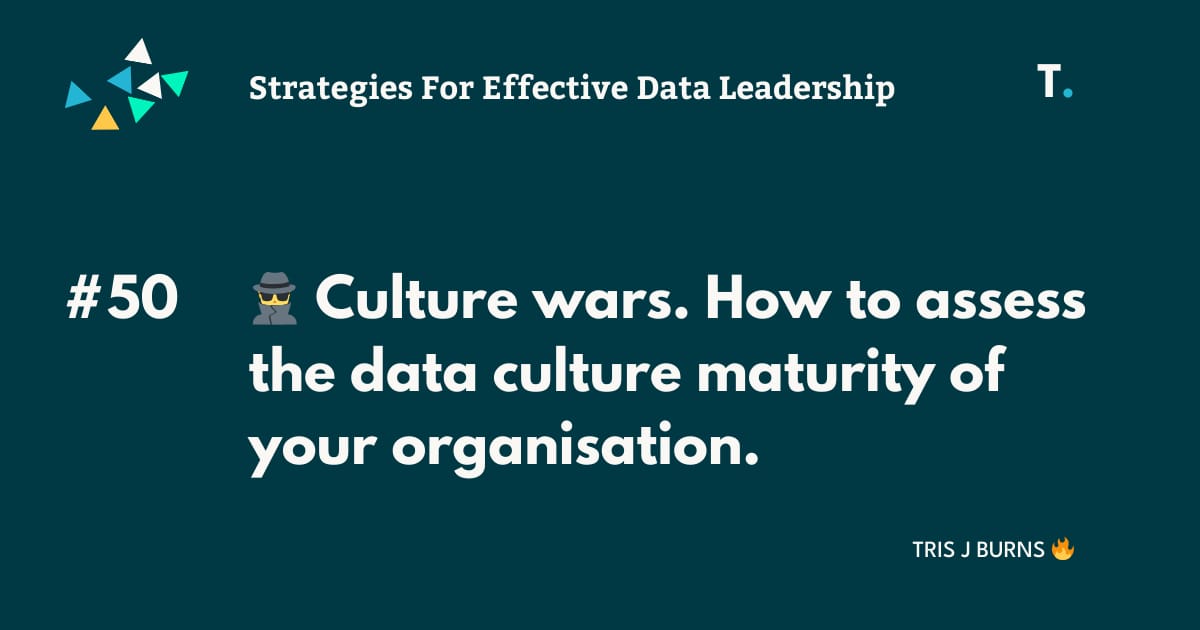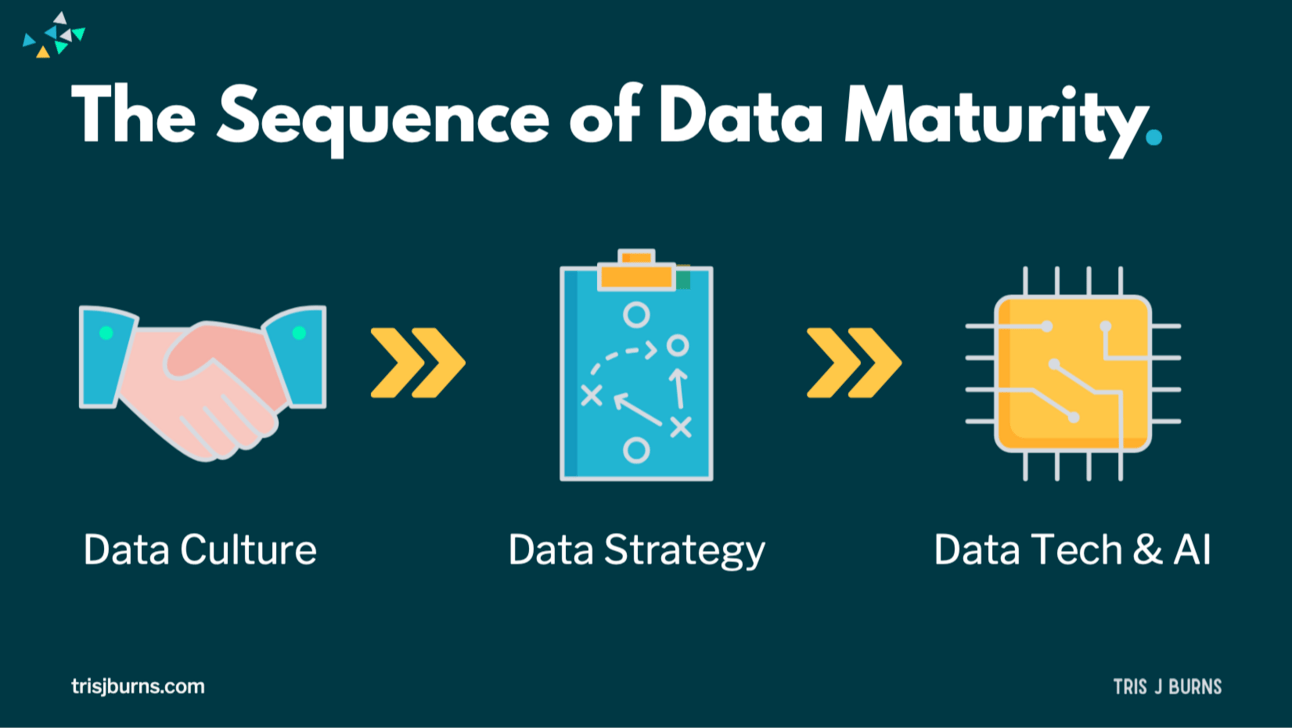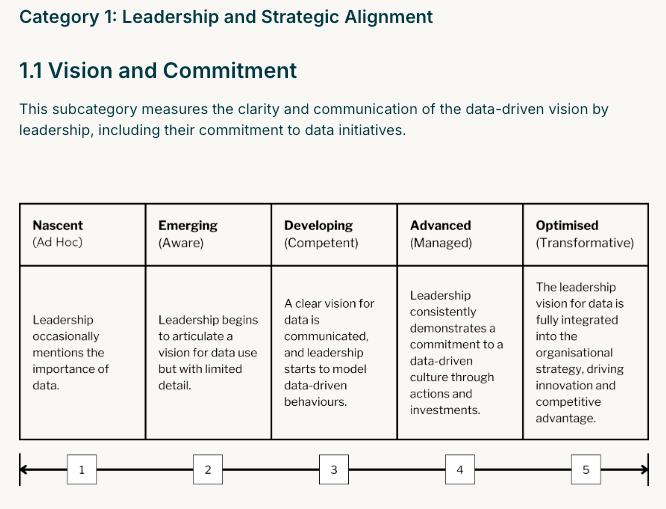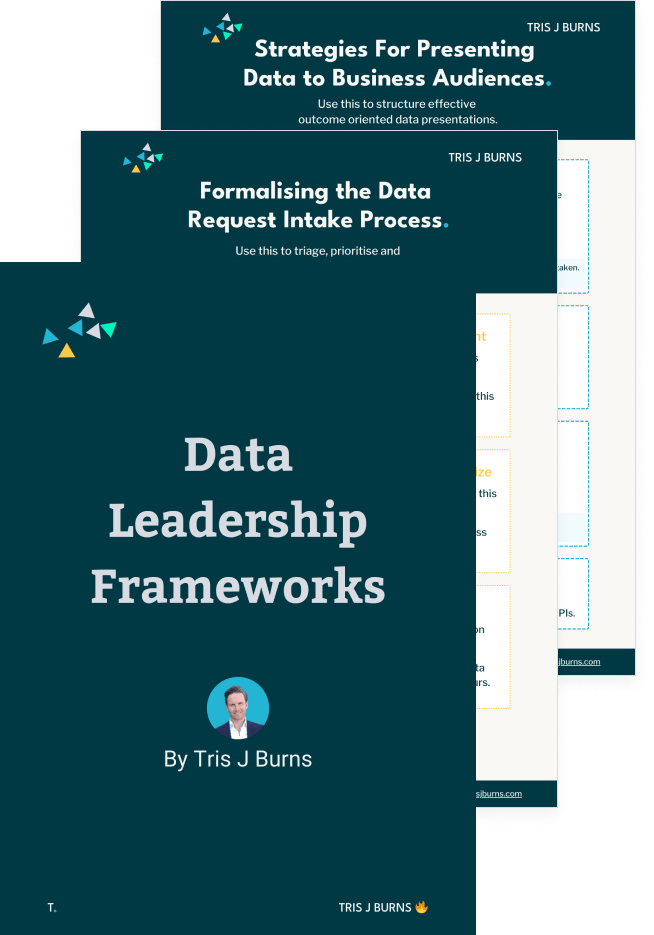
READ TIME: 5 MINUTES
🚽 I hate to say it but…
If your data culture is in the toilet, so too will be your data. 💩
(for a refresh on data culture check out an older post here)
👉🏼 Put simply, a data culture is an organisational mindset and environment where data is consistently valued, trusted, and used to drive decision making at all levels and across all teams.
Data culture is an essential area of focus for data leaders and is an important component of an organisation’s overall data capability.
Get data culture wrong and you’ll be fighting an uphill battle for all of your data initiatives.
It will impact your ability to deliver a data strategy and will severely hamper your chances at pulling down ROI from tech and people investments.
Addressing an immature data culture is a company wide job - but invariably, data leaders like you will need to play an active role.
Quick Poll: How do your rate your org's data culture maturity?
Unless you organisation’s data culture is sufficiently mature, both data strategies and data technologies will struggle to achieve the necessary impacts and achieve an return on investment.
Which sucks for obvious reasons👇🏻

😩 What could go wrong if we ignore data culture?
Everything in data is downstream from data culture.

How good are my design skills?!
You won’t be able to successfully execute a data strategy without first having a robust data culture in place. And it goes without saying that without those first 2 things aligned…your data technology investments will be EPIC FAILS.
But more specifically, what are the challenges we encounter when we neglect to cultivate a data culture?
🤷🏽♀️ Poor Decision-Making:
Without a strong data culture, decision making often lacks data driven insights, leading to choices based on intuition or incomplete information. This results in misguided strategies, inefficient allocation of resources, and missed opportunities for growth. No bueno.
❌ Low Data Trust and Adoption:
When data quality or governance is poor, employees may distrust available data and rely on "shadow data" or personal spreadsheets. This leads to inconsistency across the organisation, creating silos and inhibiting cross-functional collaboration and innovation.
⚙️ Operational Inefficiencies:
An immature data culture typically lacks standardised processes for data management, access, and analysis, which slows down workflows. Teams spend more time finding, cleaning, and verifying data instead of focusing on analysis and actionable insights, leading to delays and increased operational costs.
🧠 Difficulty Retaining Talent:
Skilled data professionals are often drawn to environments where their expertise is valued and utilised. In companies with weak data cultures, talent may feel underutilised or frustrated by a lack of data-driven priorities, leading to high turnover, difficulty attracting new talent, and lower overall team morale.
How you begin to address challenges around data culture will be a unique journey for each individual organisation because each companies challenges will be unique.
The first step towards addressing your organisation’s overall data culture will be to assess where you are at today.
🔍 The 6 Pillars of Organisational Data Culture
There are 6 key pillars to organisational data culture.
They are:
🫡 Leadership and Strategic Alignment
📚 Data Literacy and Skills Development
🤝 Collaborative Data Practices
📊 Data Driven Decision Making
🤖 Innovation and Adaptability in Data Utilisation
⚖️ Data Governance and Ethical Use
These are the key areas you should be looking at in order to assess your organisation’s data culture maturity.
In some areas, your organisation may perform well, it others, it likely won’t.
Notice that technological capabilities are not part of the data culture maturity assessment? That’s because, as mentioned above, technology and capability are downstream from culture. If you fail to get culture right, you’re not unlikely to succeed in those other areas, so looking at them comes later.
🔍 How to Assess Your Data Culture
Perhaps the easiest way to assess your organisation’s data culture is to use an assessment tool like the one below 👇🏻 (which you can find here)
The purpose of tools like these is to score your organisation’s strengths and capabilities in key areas of each of the pillars listed above.
For example on leadership and strategic alignment, you would rate your organisation out of 5 against these keys areas:
👁️ Leadership’s vision and commitment to data - how well they clearly communicate their data driven vision, as well as their commitment to data initiatives.
💵 Leadership’s willingness to allocate resources to data - how committed are they to allocating sufficient time, budget and resources to data initiatives?
💿 Data & strategy integration - how well has leadership managed to align data initiatives with overall organisation strategic goals?
This activity is repeated across each of the 6 pillars with relevant sub topics for each. At the end of the assessment you’ll have a score that will enable you to determine where your organisation’s overall data culture maturity sites of the scale below:
Nascent
Emerging
Developing
Advanced
Optimised
You will also have a strong sense of which areas among the 6 pillars are dragging your score down and which ones are contributing to an overall higher score. That will help you determine your course of action for closing the gaps!
Data culture is an oft ignored area of an organisation’s overall data capability. Unfortunately, for data initiatives to have a snow ball’s chance in hell of succeed, it’s an area a data leader cannot ignore.
📧 How has your data culture maturity journey been? Hit reply and let me know about some of the unique challenges you’ve encountered! ⏎
✨ Data Leadership Frameworks✨
The ultimate guide to powering forward in your data leadership career. This self paced email series contains 10 value-packed frameworks, each tackling and tearing down major data leadership challenges.
Currently only £49.00!
By the end of the series you will have covered topics including:
How to create and formalise a more effective data intake process
Strategies for becoming a better presenter to non-data audiences
Developing a data strategy that aligns with your organisations overall strategy
Becoming a powerhouse at selling your data teams wins and accomplishments
Click here to learn more!

Tristan Burns
💡 Helpful resources for data professionals:
The Data Leadership Frameworks: This email series containing 10 data leadership frameworks, will equip you with the necessary skills and knowledge to maximise your effectiveness and become the influential and powerful data leader you know you can be.
DIY Coaching Program: Through a series of 9 self-guided exercises, you’ll clarify your goals, overcome obstacles, and create a plan for your next career move - all at your own pace.
⚡️Three more ways I can help you:
Private Coaching for Data Leaders: I work with data professionals looking to grow into influential and unstoppable data leaders to help them navigate and overcome the challenges of being a data leader.
Group coaching for Data Teams: Great data teams can make or break businesses. Through my facilitated 6-week group coaching program, together we get to the heart of what is holding teams back and set a course for data-driven success.
Google Analytics, Tagging and Looker Support: Helping teams to set up or optimising their data eco system, generate actionable insights and gain more in-depth knowledge through training.
What did you think of this email?
If you enjoyed this newsletter, why not forward it to a friend.
Did someone forward you this email? You can subscribe to Strategies for Effective Data Leaders here!


